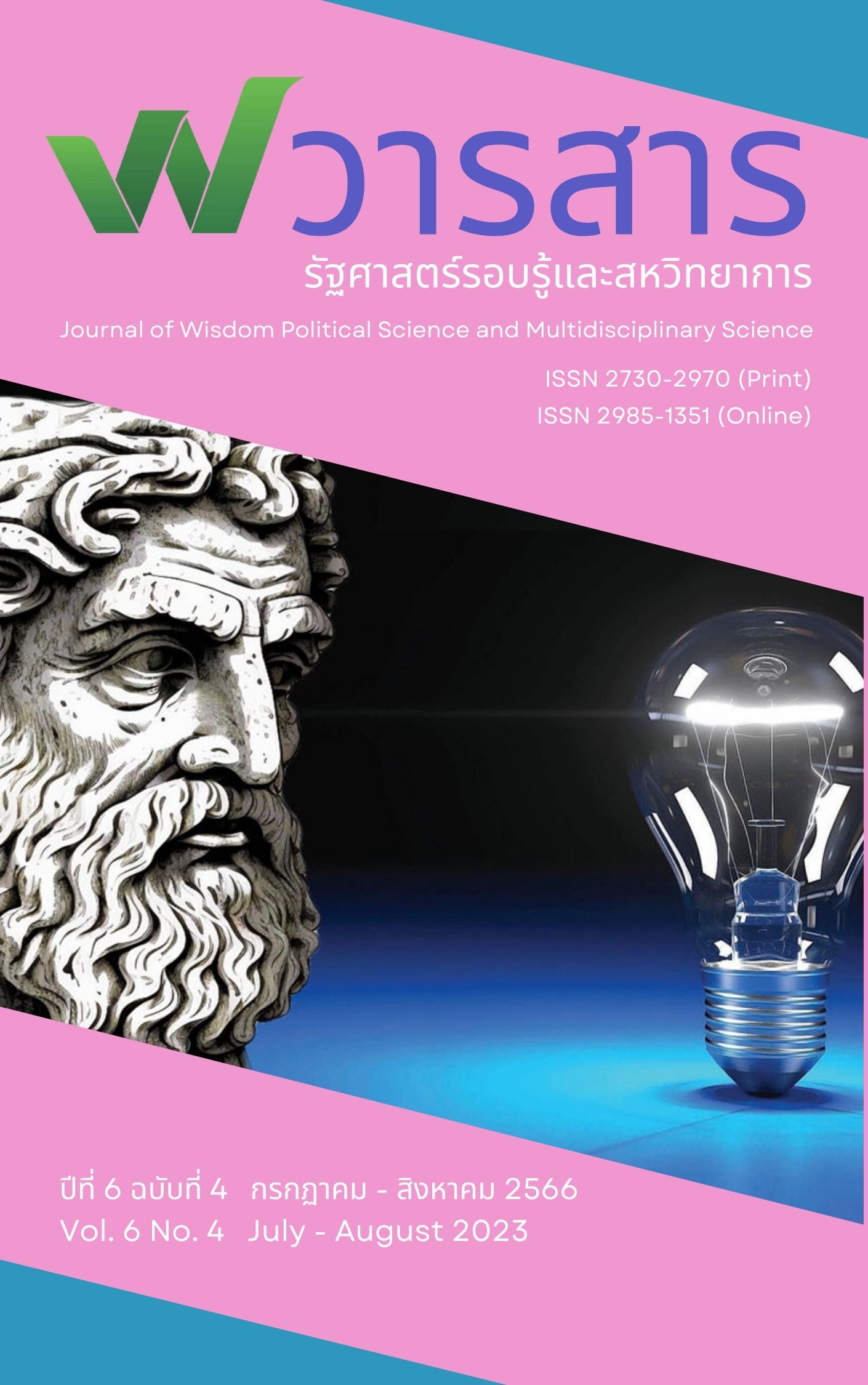LEARNING MANAGEMENT BASED ON STEM EDUCATION CONCEPTS TO PROMOTE PROBLEM-SOLVING SKILLS IN CHONGQING, CHINA
Main Article Content
บทคัดย่อ
This study aims to understand university students' knowledge and perception of STEM (Science, Technology, Engineering, and Mathematics) education, focusing on gender, age, and educational background. It also explores students' views on how STEM education promotes problem-solving skills.
The sample population mainly consisted of female students (59.3%), those under 20 years old (36.9%), and undergraduates (36.9%). Overall, students demonstrated a good level of understanding about STEM education (57.72% correct answers), with the distribution of scores revealing that a significant number of students performed at excellent, reasonable, and moderate levels (29.8%, 28.6%, and 25.9%, respectively). Only a small percentage (15.7%) were categorized as having a low level of understanding. Notably, there was no significant difference in STEM education understanding when data were analyzed by sex, age, or educational status, suggesting an equitable distribution of knowledge across these demographic factors. The results were generally favorable regarding students' opinions about using STEM education to foster problem-solving skills (average score = 3.43). Comparative analyses using One-Way ANOVA revealed no significant difference in these opinions when classified by sex, age, or educational level.
These results underscore the value students place on STEM education as a tool to enhance problem-solving skills, reinforcing the importance of supporting these educational programs. Further, similar levels of understanding and opinion across demographic factors point towards the equitable impact of STEM education in the sample population.


